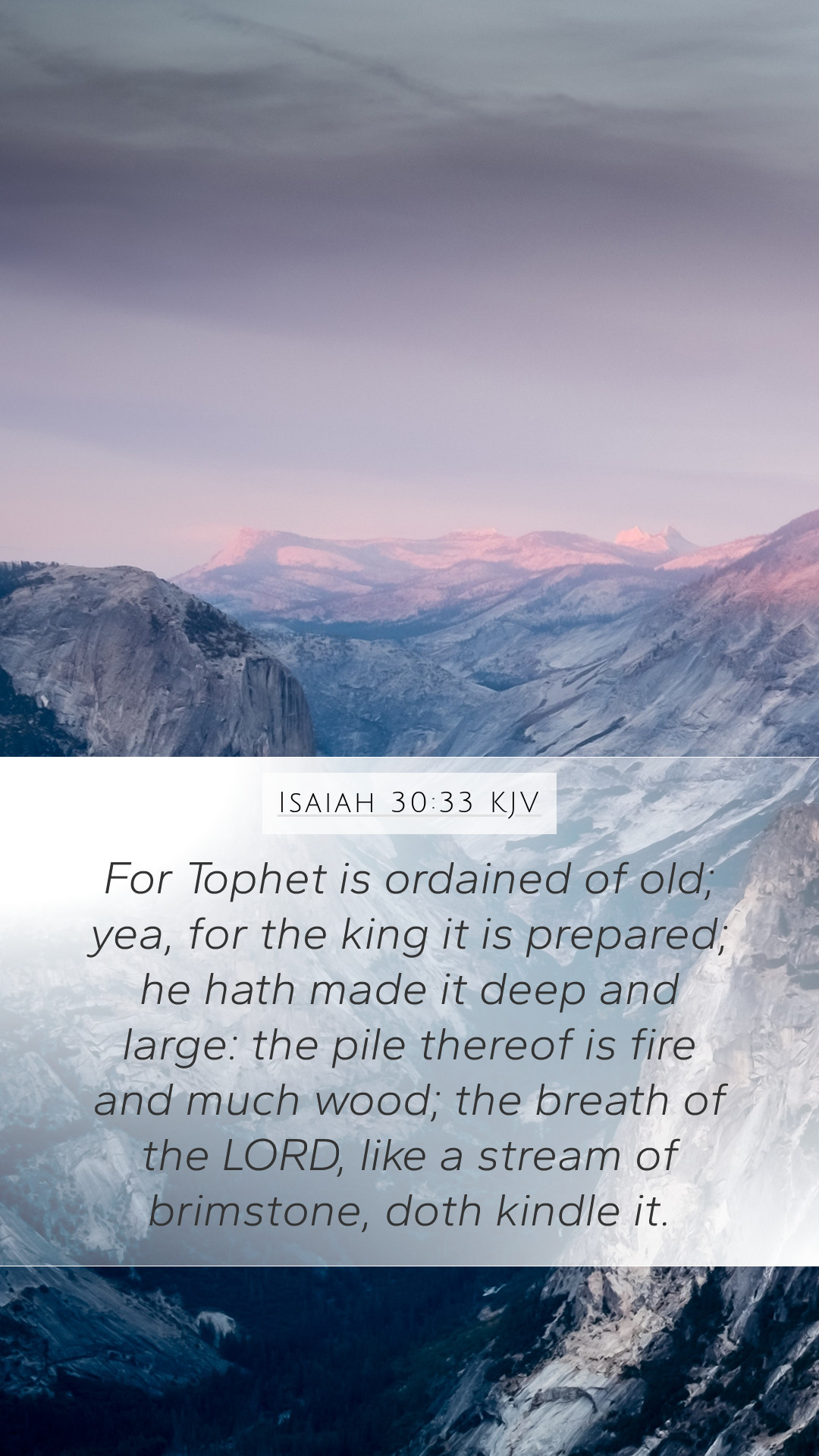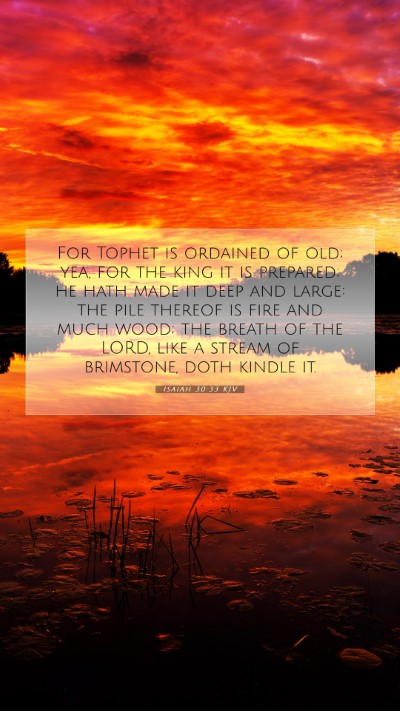Understanding Isaiah 30:33
Isaiah 30:33 states: "For Tophet is ordained of old; yea, for the king it is prepared: he hath made it deep and large: the pile thereof is fire and much wood; the breath of the Lord, like a stream of brimstone, doth kindle it."
This verse provides a rich field for exploration within the realm of Bible verse meanings and Bible verse interpretations. It speaks of Tophet, a place associated with judgment and destruction, evoking deep theological implications about divine retribution and the consequences of sin.
Contextual Understanding
The term "Tophet" is often linked to the valley of Hinnom, a notorious site for idolatrous practices and sacrifices, especially those of children to the god Molech. The prophecy’s setting depicts divine condemnation upon practices contrary to God’s law, showing an alarming reality of judgment against those who forsake righteousness.
Exegesis and Commentary Insights
- Matthew Henry's Commentary: Henry emphasizes God's sovereignty in preparing Tophet as a place of punishment, underscoring the eternal consequences for unrepentant sinners. The mention of the king elaborates that even those in power are not exempt from divine judgment.
- Albert Barnes' Notes: Barnes interprets the "breath of the Lord" as a metaphor illustrating the consuming wrath of God, igniting the fires of judgment. He explores the idea that God’s anger is both fierce and necessary to maintain divine justice.
- Adam Clarke's Commentary: Clarke dives into the historical significance, citing the ancient practices and the turning away from God that led Israel to such a dire state. He indicates that this verse is a warning to the people against trusting in false idols and emphasizes the irrevocable nature of God's judgment.
Theological Implications
This verse highlights the theme of judgment which permeates Scripture. It serves as a sober reminder that understanding Scripture includes recognizing the seriousness of sin and the reality of spiritual consequences. Tophet becomes a symbol of the grave ramifications that await those who reject God’s will.
Application for Contemporary Life
In applying Isaiah 30:33 to modern life, believers are called to reflect on the depths of their own faith and to evaluate what sacrifices they may be making—be it of their character, values, or commitments to God. The warning against complacency and the allure of worldly practices remains relevant, compelling individuals to reassess loyalty to God's truth.
Cross References
For further study, consider these related Scriptures that echo similar themes:
- Jeremiah 7:31: Highlights the abhorrent practices in the valley of Hinnom.
- Matthew 5:22: Raises the idea of divine judgment on anger and its repercussions.
- Revelation 20:10: Discusses the final judgment of the devil and the fate awaiting the unfaithful.
Conclusion
Isaiah 30:33 acts as both a warning and an invitation to Bible study insights regarding the seriousness of sin and the real consequence of separation from God. By studying and applying the lessons drawn from this verse, believers can cultivate a deeper understanding of divine justice and mercy.
Further Study Resources
For those interested in delving deeper into biblical texts, consider utilizing various Bible study tools and resources that explore themes of judgment, sin, and redemption:
- Bible Study Guides: Provide structured lessons on significant passages.
- Online Bible Study: Interactive platforms for group discussions on challenging topics.
- Bible Study Courses: In-depth explorations of specific books and scriptures.


